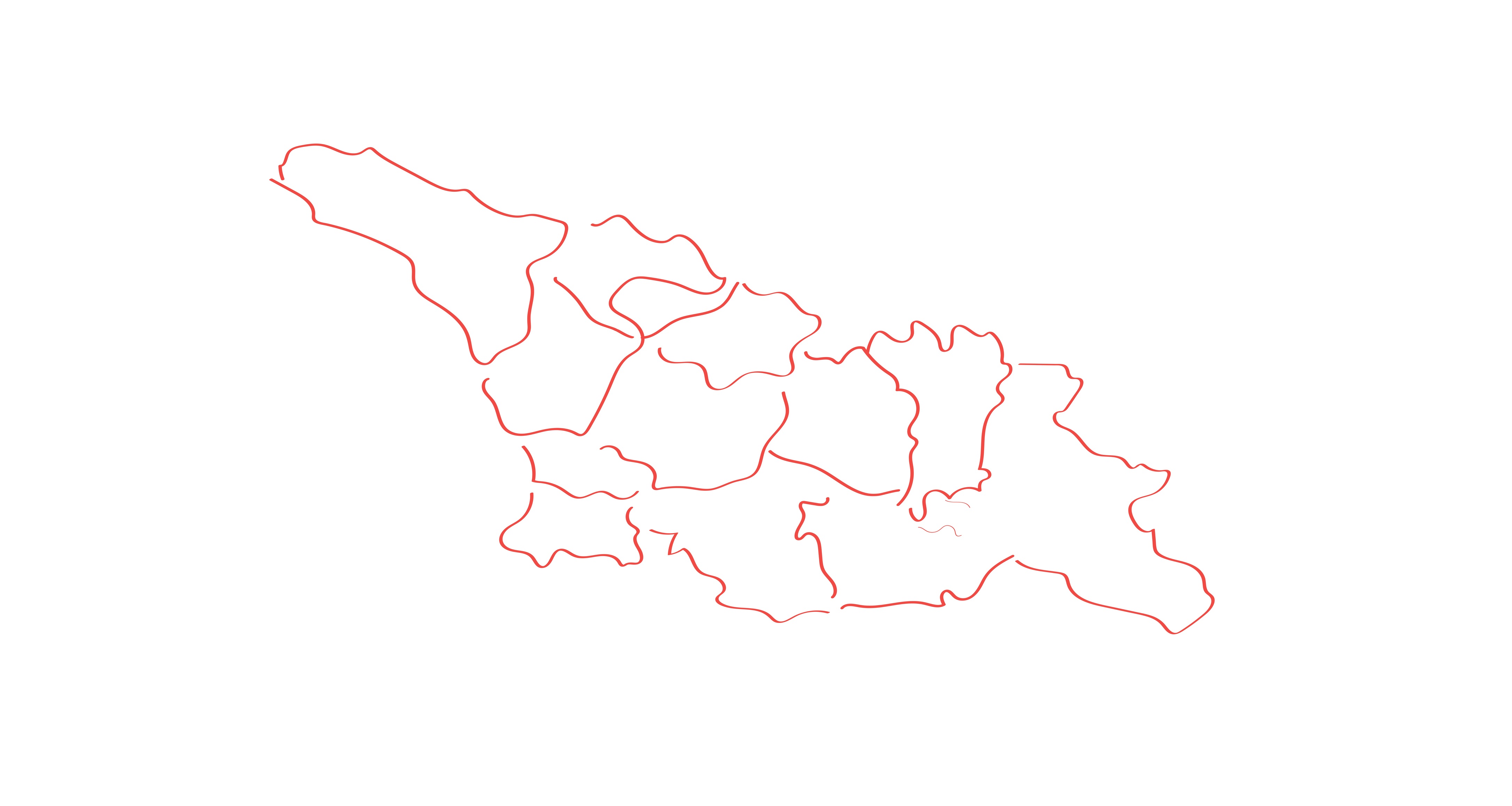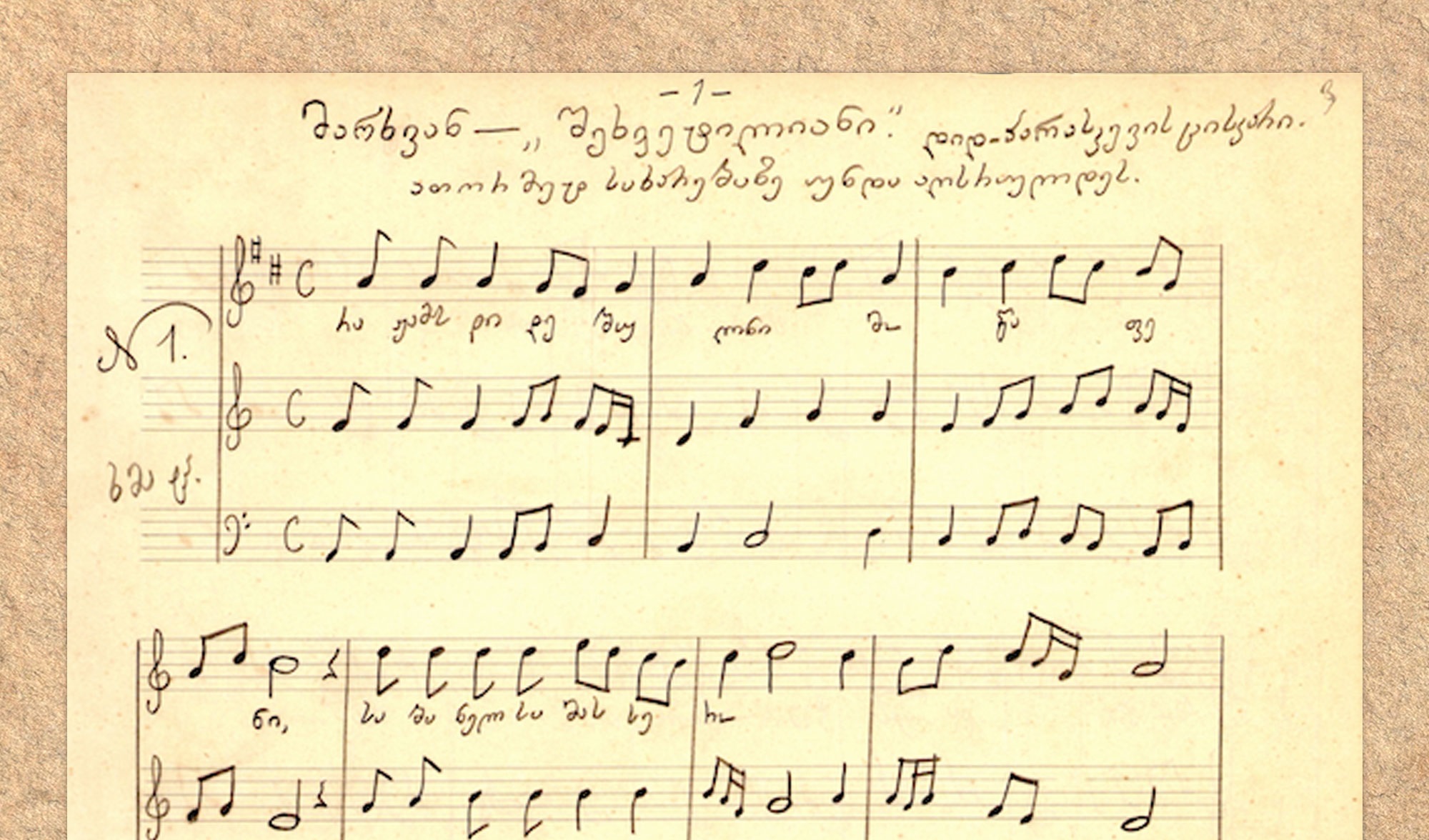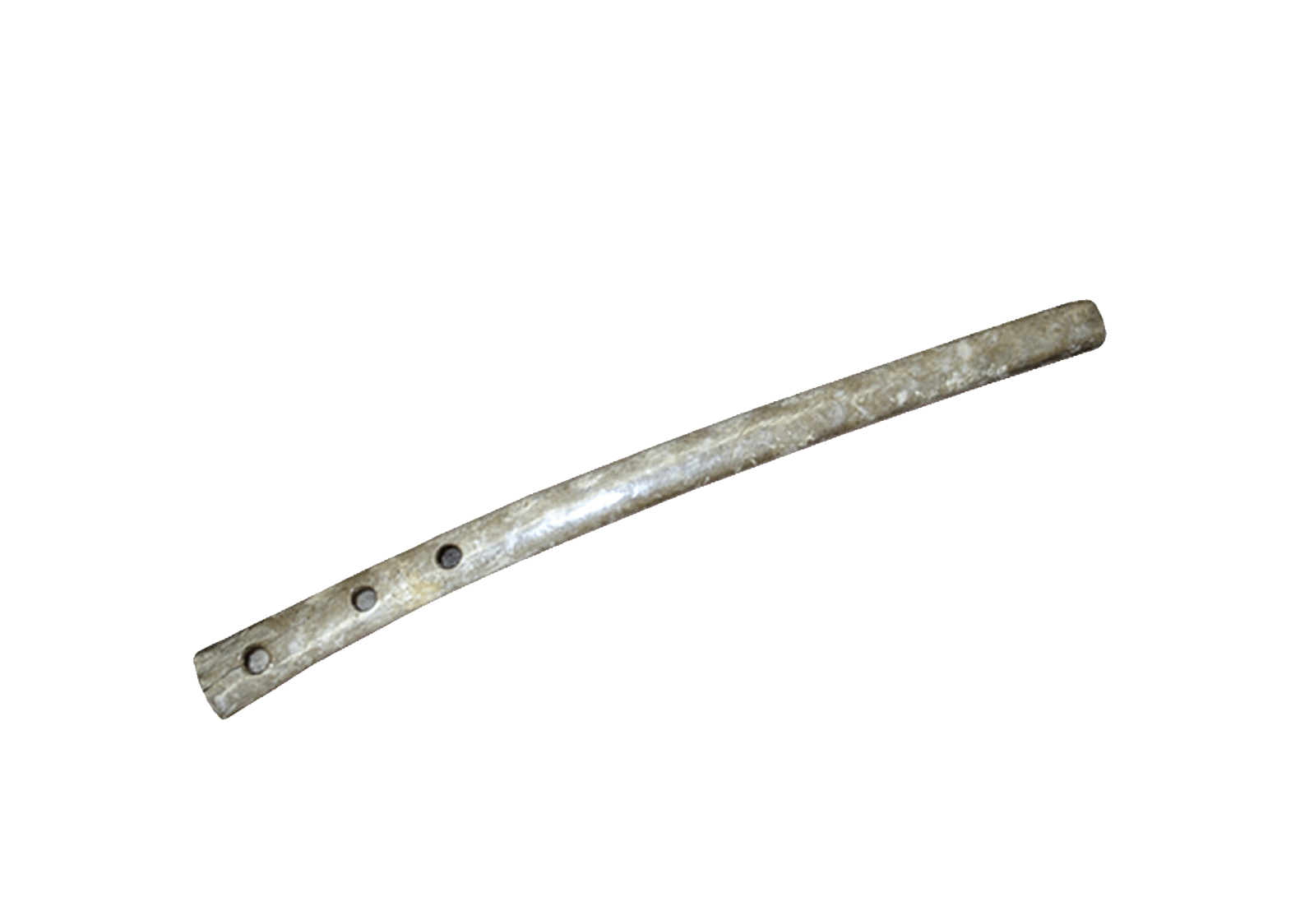Georgian Musical Dialects
Musical Language and Dialects
Georgian folk music is the common musical language of ethnic Georgians. A musical “dialect” may be understood as a branch of this language, which is dispersed across a defined territorial unit and is characterized by individual features, in addition to those common throughout Georgia.
A particular musical dialect is more often than not found in a corresponding ethnographic region (for example, the Tushetian musical dialect on the territory of Tusheti, the Svan dialect in Svaneti, etc.). If the folk musics of two neighboring regions have more in common than not, then they are united into one dialect (for example, the Khevian-Mtiuletian and Kartli-Kakhetian musical dialects).
Music from different sub-regions is then considered as belonging to smaller units within the dialect, which may be termed sub-dialects or k’ilok’avebi. For example, Khevian and Mtiuletian are each a k’ilok’avi of the Khevian-Mtiuletian musical dialect, Kartlian and Kakhetian of the Kartli-Kakhetian dialects. Musical dialects are also divided into sub-dialects if the musics of different parts of the same region differ from each other (for example, the Upper and Lower Imeretian sub-dialects of the Imeretian dialect, or the Rach’an and Mountain Rach’an sub-dialects of the Rach’an dialect).
The abundance and diversity of musical dialects in the small territory of Georgia is one of the important features of Georgian folk music, which speaks to its originality.
History of Musical Dialect Research
Dimitri Arakishvili, who founded the field of national musical folklore studies in Georgia, laid the foundation for the study of Georgian musical dialects. In works from the early 1900s, he referred to the folk music from different corners of Georgia as “branches” of Georgian music, which implies the idea of dialects.
The term dialect comes to musicology from linguistics, where it refers to branches splitting off a common language. However, unlike with languages, musical dialects do not imply a splintering of the musical root that leads to the emergence of independent languages: Svan and Zan (aka Megrelian-Ch’an), although they also refer to languages that have separated from Georgian, are still dialects of the Georgian musical language just as, for example, Khevsur and Gurian.
Scholars of different generations, such as Shalva Aslanishvili, Grigol Chkhikvadze, Vazha Gvakharia, Mindia Jordania, Otar Chijavadze, Manana Shilakadze, Nino Maisuradze, and Joseph Jordania have made significant contributions to the research of Georgian folk music dialects. Edisher Garakanidze’s dissertation, Georgian Musical Dialects and Their Interrelationships, is dedicated to this topic. Based on the study of folk music (mainly singing repertoire) from different parts of Georgia, he distinguished fifteen separate dialects. They are: Khevsur, Pshavian, Tushetian, Khevian-Mtiuletian (with Khevian and Mtiuletian sub-dialects), Gudamaqarian, Kartli-Kakhetian (with Kartlian and Kakhetian sub-dialects), Meskhetian, Svan, Rach’an (with Rach’an and Mountain Rach’an sub-dialects), Lechkhumian, Megrelian, Gurian, Ach’aran-Shavshetian (with Ach’aran and Shavshetian sub-dialects) and Laz (also known as Ch’an).
When identifying musical dialects, Garakanidze prioritizes musical principles, but also justifies the use of other, non-musical, principles if necessary. Polyphony (its predominant type and/or level of development) is the starting point, as it is the common feature expressing the essence of the Georgian musical language.
Also recognized in Georgian ethnomusicology are “intermediate” dialects, which, in addition to their own, have many features from other dialects. The following are considered to be intermediate dialects: Rach’an and Imeretian (between Eastern Georgian and Western Georgian dialects), Lechkhumian (between Svan-Rach’an and Imeretian-Megrelian dialects), and Gudamaqarian (between Pshav-Khevsur and Khevian-Mtiuletian dialects).
Interdependence of Dialects
Georgian musical dialects are quite different from each other, but are characterized by the same principles, which confirm their common origin. A comparison of dialects allows us to present a rather comprehensive picture of the development of Georgian folk music.
Issues and Perspectives in Dialectological Research
The study of Georgian musical dialects involves the study of the music of each ethnographic group of Georgians and is directly dependent on the presence or absence of relevant musical material. Gaps in dialectological research, in turn, are reflected in the teaching and performance of folk music. This is especially evident in the case of the mountains of eastern Georgia, as well as in Meskheti and Lazeti/Ch’aneti.
New material recorded during recent field research can also change the previously determined layout of musical dialects. Following a study of materials (primarily instrumental music) obtained in 2010 in regions that were historically part of Georgia, Giorgi Kraveishvili has added the dialects of Tao and Klarjeti to the list, as their independence from the Ach’aran-Shavshetian and Ingilo-Heretian is more or less confirmed through numerous musical examples.
Ethnomusicological field work conducted especially for this purpose will bring further innovations to Georgian musical dialectology in the future.




